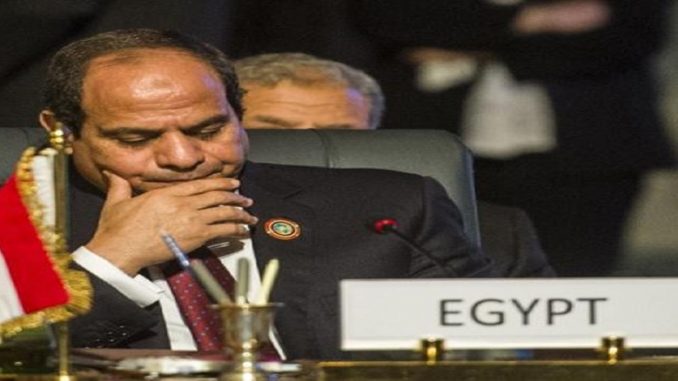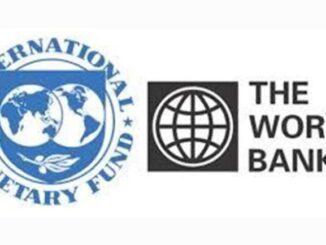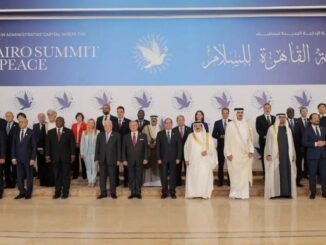
The Coronavirus pandemic has exposed the shortfalls of a government that has neglected the health sector for too long. said the Foreign Policy in a report BY NAEL M. SHAMA
On March 16, Egypt had 126 confirmed cases of the new coronavirus. By mid-April, that figure had reached 2,700. A week later, cases had grown by more than a third. While the outbreak is just beginning, Egypt’s fragile health care system is already struggling. So too is its population. A long-troubled economy and a government that has not prioritized spending on health services is adding tinder to the fire. Should the coronavirus continue its rapid spread, it is only a matter of time before the current health crisis explodes into a political one.
The steep increase in the number of coronavirus cases has underscored the dire shape of Egypt’s health care system. Some 5,000 cases have been confirmed and 359 people have died of the coronavirus as of April 28, though with so little testing the real figure is doubtless higher.
Throughout the country, there is a shortage of doctors, nurses, drugs, medical supplies, and beds, leaving the health care system ill-equipped to manage a fast-moving and highly lethal pandemic. Low pay and bad working conditions have led many physicians to leave the country, including around 10,000 over the past three years alone. According to an estimate by Egypt’s Medical Syndicate, out of a total of 220,000 registered medical doctors, around 120,000 work outside Egypt. Public hospitals are understaffed by some 55,000 to 60,000 nurses. Egypt has 1.3 hospital beds per 1,000 people, compared with around 13 in Japan, 8 in Germany, and 6 in France. Unsurprisingly, according to Arab Barometer, only 31 per cent of Egyptians said they were satisfied with the overall performance of their government’s health care service in 2018-2019, a 19-point drop since 2010.
Doctors, nurses, and medics now account for 13 percent of Egypt’s coronavirus cases, roughly the same percentage recorded in Italy and Spain. Despite the danger of speaking out, many doctors have resorted to social media to raise awareness over the working conditions, mismanagement, and supply shortages that they say are endangering their lives. Videos of health workers protesting in the hallways of hospitals have become common. If the crisis escalates, attempts to muzzle their voices may prove unsuccessful.
For decades, health care has been all but ignored by the government—particularly when compared with the sizable share of the national budget allocated to security forces. Government funding for health declined from 6.7 per cent of the national budget in 2000 to 4.2 per cent in 2016.
The growing coronavirus caseload will serve as a tragic reminder to the country’s leaders that not all threats are military in nature. Since Abdel Fattah al-Sisi became president in 2014, he has overemphasized the threat of terrorism and the sacrifices made by Egypt’s military and police to curb it. This came at the expense of other risks. The military is Egypt’s most powerful political, economic, and security institution. Since 1952, its role in the political system, the economy, and society has been central and decisive. It has been heavily engaged in fighting Islamist militants in Sinai for the past seven years.
Entrenched corruption and mismanaged state resources have exacerbated public frustration. Rare protests against Sisi broke out last September after a former army contractor living in self-imposed exile, Mohamed Ali, released viral videos in which he accused senior leaders of corruption. Sisi’s assertions that the presidential palaces he was criticized for constructing were for the greater good—necessary to build “a new state”—only added to public outrage. Meanwhile, the Egyptian government continues to construct a glitzy new capital east of Cairo, estimated to cost $58 billion.
This is all the more disturbing given the country’s economic woes. Egyptians still bear the brunt of the 2016 float of the Egyptian pound, which led the pound to lose half its value against the U.S. dollar. In 2018, the nationwide poverty rate rose to 32.5 per cent, a 5 percentage point increase from two years prior. The economic recovery has been lethargic, so much so that Egypt’s non-oil private economic activity contracted in January to its lowest point in nearly three years. There is no doubt that the coronavirus-induced global lockdown will cause a sharp decline in the country’s main sources of badly needed hard currency: revenues from tourism (which accounts for some 12 per cent of Egypt’s GDP), fees from shipping through the Suez Canal, foreign investment, and remittances from workers abroad—many of whom work in sectors that have been immediately affected by restrictive anti-coronavirus measures and the drop in consumer spending.
Read More:
8.5 billion USD in foreign investment left Egypt in 3 months
Egypt: For 12th. Time in a Row, Sisi Renews State of Emergency for 3 Months
Egypt request a new loan from the IMF amid virus-inflicted downturn!



